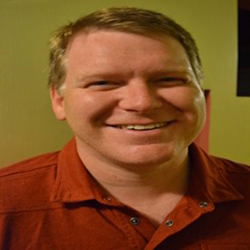MSE Colloquium - Darrell Irvine

When:
Tuesday, May 23, 2017
4:00 PM - 5:00 PM CT
Where: Technological Institute, L361, 2145 Sheridan Road, Evanston, IL 60208 map it
Audience: Faculty/Staff - Student - Post Docs/Docs - Graduate Students
Contact:
Department Office
(847) 491-3537
Group: Department of Materials Science and Engineering (MatSci)
Category: Lectures & Meetings
Description:
Engineering immunity against infectious disease and cancer via new nanomaterials
Presented by: Darrell Irvine
Abstract: Our laboratory focuses on applying principles from engineering and technologies from materials science, chemistry, and bioengineering to develop new approaches to study the immune system, create new diagnostics, and create next generation vaccines and cancer immunotherapies. Three vignettes of approaches we have explored spanning infectious disease, vaccines, and cancer immunotherapy will be presented. Gold nanoparticles have been extensively studied as nanomaterials for drug delivery and diagnostics. We have recently studied the in vivo behavior of a particular class of organic ligand-protected gold nanoparticles, which are capable of sequestering hydrophobic drugs and cell penetrating behavior. A novel approach for tracking gold nanoparticles in vivo using single cell mass cytometry will be described, as well as the application of the these nanomaterials as antibiotic delivery agents to block the lethal dissemination of bacterial infections. We have also developed strategies to enhanced vaccines and immunotherapy based on two different approaches to the design of “hitchhiking” therapeutics: First, an approach to enhance adoptive cell therapy (ACT) for cancer will be described. ACT using patient-derived tumor-specific T-cells is a promising approach for cancer treatment, but strategies to enhance ACT T-cell functionality in vivo are needed. We developed a strategy combining nanomedicine with ACT, based on the chemical conjugation of drug-loaded nanoparticles (NPs) as synthetic “backpacks” to the surfaces of live lymphocytes for ACT. Second, a novel strategy for targeting antigens and immunostimulatory agents to lymph nodes will be described, based on the design of albumin-binding amphiphiles-peptides and amphiphile-adjuvants. These “albumin-hitchhiking” amphiphiles were efficiently delivered to lymph nodes following injection, leading to as much as 30-fold amplified cellular immune responses and anti-tumor immunity. In ongoing preclinical studies, we have discovered combination immunotherapies that leverage these very potent engineered peptide vaccines to eradicate established immunosuppressive tumors in a majority of treated animals, providing proof of concept that the endogenous immune system is capable of eliminating large established tumors. These examples illustrate the power of bioengineering approaches in shaping the immune response and studying immune cell biology.
Bio: Darrell Irvine, Ph.D., is a Professor at the Massachusetts Institute of Technology and an Investigator of the Howard Hughes Medical Institute. He also serves on the steering committee of the Ragon Institute of MGH, MIT, and Harvard. His research is focused on the application of engineering tools to problems in cellular immunology and the development of new materials for vaccine and drug delivery. Current efforts are focused on problems related to vaccine development for HIV and and immunotherapy of cancer. Dr. Irvine’s work has been recognized by numerous awards, including a Beckman Young Investigator award, an NSF CAREER award, selection for Technology Review’s ‘TR35’, election as a Fellow of the Biomedical Engineering Society, election as a fellow of the American Institute for Medical and Biological Engineering, and appointment as an investigator of the Howard Hughes Medical Institute. He is the author of over 100 publications, reviews, and book chapters and an inventor on numerous patents.